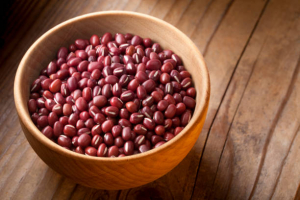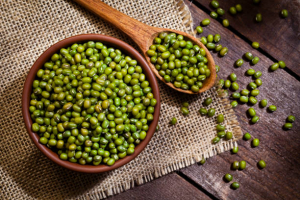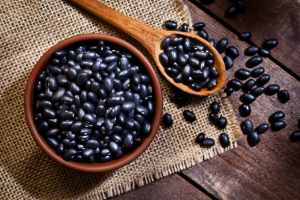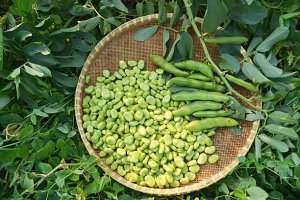Top 5 Health Benefits of Pinto Beans
The most common dry beans in the United States are pinto beans. They are a type of common bean that is commonly used in Mexican cuisine. When dried, pinto ... read more...beans are beige with reddish-brown flecks, but when cooked, they become a solid light brown or pale pink. They have a nutty, earthy flavor and are easy to make. They are commonly consumed whole or mashed. Pinto beans are not only high in vitamins and minerals, but they may also have various health benefits. Here are the greatest pinto bean health advantages.
-
Pinto beans are primarily comprised of carbs, fiber, and protein. They also pack an incredible punch of vitamins and minerals. One cup (171 grams) of pinto beans boiled with salt provides:
- Calories: 245
- Carbs: 45 grams
- Fiber: 15 grams
- Protein: 15 grams
- Fat: 1 gram
- Sodium: 407 mg
- Thiamine: 28% of the Daily Value (DV)
- Iron: 20% of the DV
- Magnesium: 21% of the DV
- Phosphorus: 20% of the DV
- Potassium: 16% of the DV
As you can see, they contain a significant amount of thiamine (vitamin B1), a vital vitamin that aids your body in the conversion of food into energy. They also include a variety of other minerals, including iron and magnesium, as well as trace levels of other B vitamins, zinc, and calcium. Pinto beans are cholesterol-free and low in fat and sodium when cooked without salt or other additives.
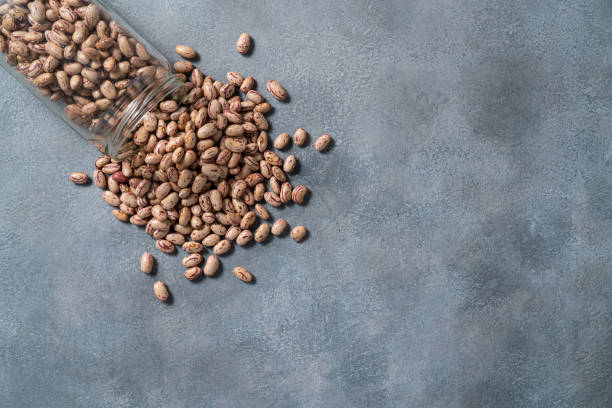
Loaded with nutrients 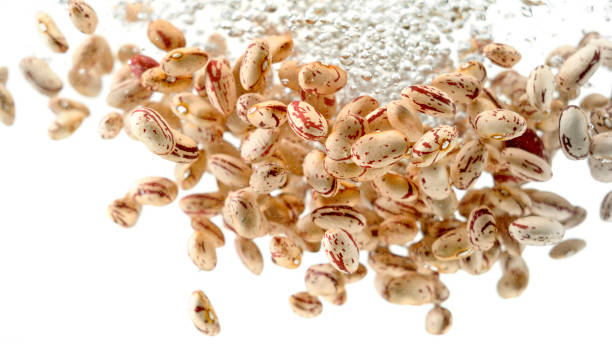
Loaded with nutrients -
Fiber is an indigestible carbohydrate found in plants. It's essential for digestive health since it feeds the healthy bacteria in your stomach. However, most people do not consume the required amount of fiber each day. Men should consume 38 grams of fiber per day, while women should consume 25 grams.
For women and men, one cup (171 grams) of boiling pinto beans provides 40-60% of the DV. Adequate fiber intake, especially pinto beans, may benefit heart health, blood sugar control, digestion, gut health, and even weight loss. Pinto beans are an excellent source of dietary fiber, which is linked to improved blood sugar regulation and gut health, among numerous other benefits.
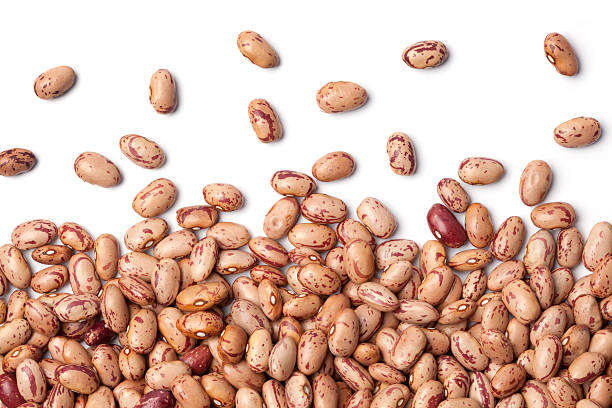
Excellent source of fiber 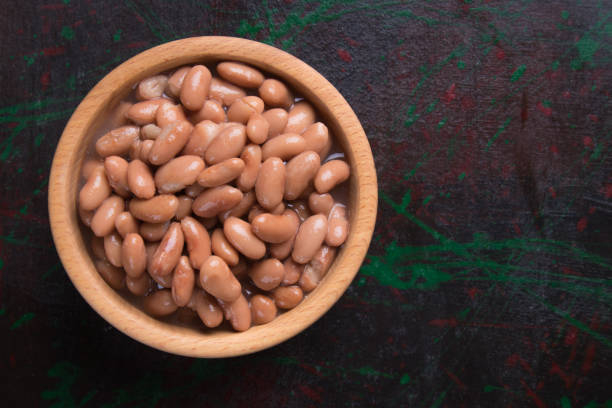
Excellent source of fiber -
Pinto beans are high in antioxidants such as polyphenols and flavonoids. Antioxidants protect your cells from free radical damage, which is caused by unstable chemicals that can contribute to disease over time. Pinto beans are notably high in kaempferol, a flavonoid with numerous health advantages. Many animal and in vitro studies have linked it to suppressed cancer growth. Furthermore, kaempferol has been linked to decreased inflammation and a lower risk of stroke.
Pinto beans may help with blood sugar regulation. Despite their large carbohydrate content, they do not significantly raise blood sugar. Because they have a low glycemic index (GI), they are digested slowly, which helps to moderate their blood sugar impact. Several studies have found that eating low-GI meals can aid improve blood sugar management. Pinto beans are also abundant in fiber and protein, which both decrease the release of sugar into your system.
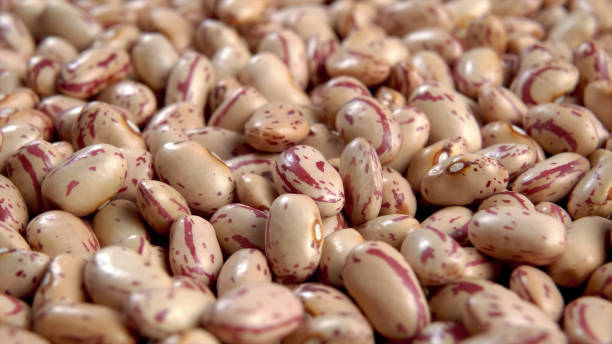
Rich in antioxidants 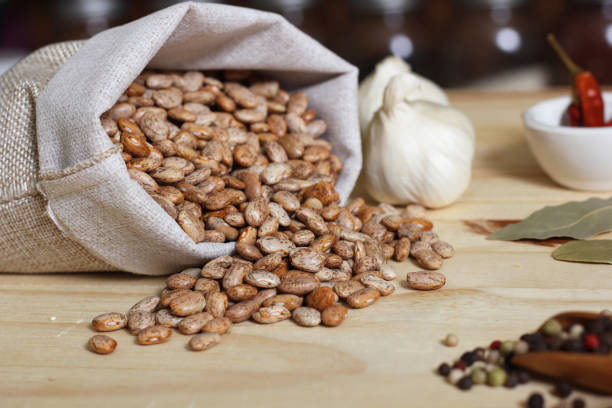
Rich in antioxidants -
Pinto beans are also good for your heart. One short, 8-week trial discovered that consuming 1/2 cup (86 grams) of pinto beans per day significantly reduced total and LDL (bad) cholesterol, both of which are associated with an elevated risk of heart disease. Another study found that eating pinto beans on a daily basis not only reduced LDL (bad) cholesterol but also increased propionate synthesis.
Propionate is a short-chain fatty acid (SCFA) that has been found to reduce blood cholesterol and blood pressure. Finally, pinto beans are high in minerals like magnesium and potassium. These minerals aid in the prevention of high blood pressure, a major risk factor for heart disease.
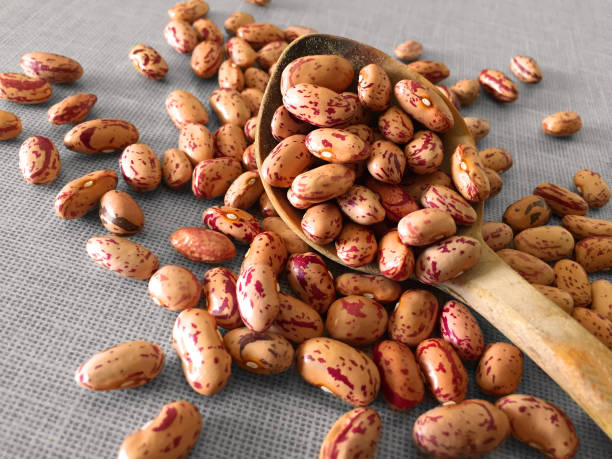
May aid heart health 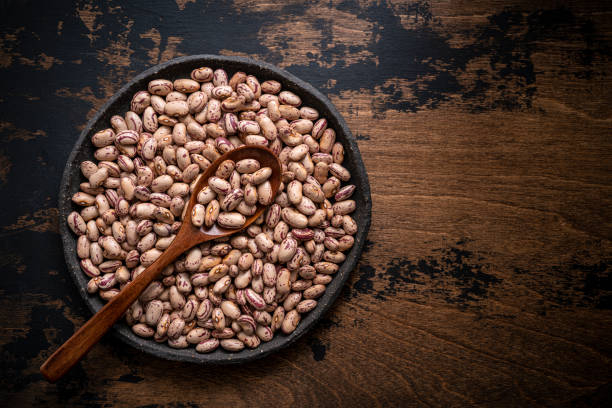
May aid heart health -
Wines, dried fruits, and some vegetables contain sulfites, which can cause headaches and dizziness. According to research, pinto beans are particularly high in molybdenum, a rare mineral that is rarely found in foods. One cup of pinto beans provides 285 percent of the daily requirement for molybdenum. This mineral mitigates the negative effects of sulfites.
Molybdenum also aids in the creation of cell energy and the development of the nervous system. Pinto beans also supply the brain with essential amino acids, vitamins, and minerals. Vitamins such as folate play an important function in the regulation of particular amino acids required by the neurological system. According to research, a lack of dietary folate can raise homocysteine levels, which can be a risk factor for neurological disorders such as Alzheimer's and Parkinson's.
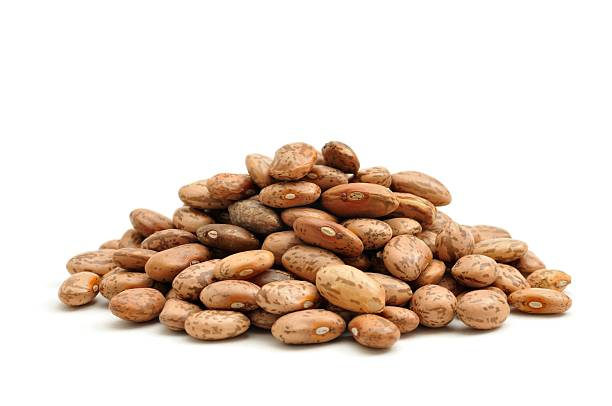
Help you detoxify your body and help improve nervous system 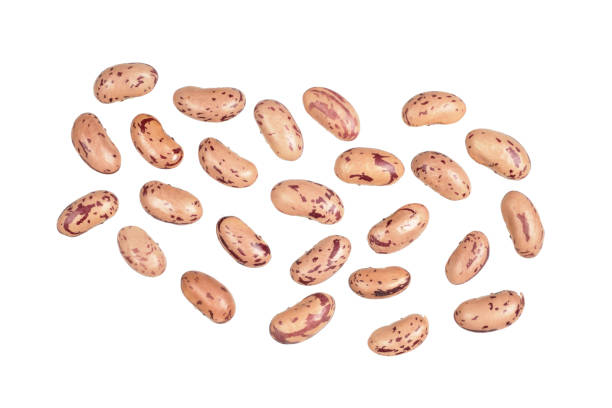
Help you detoxify your body and help improve nervous system







